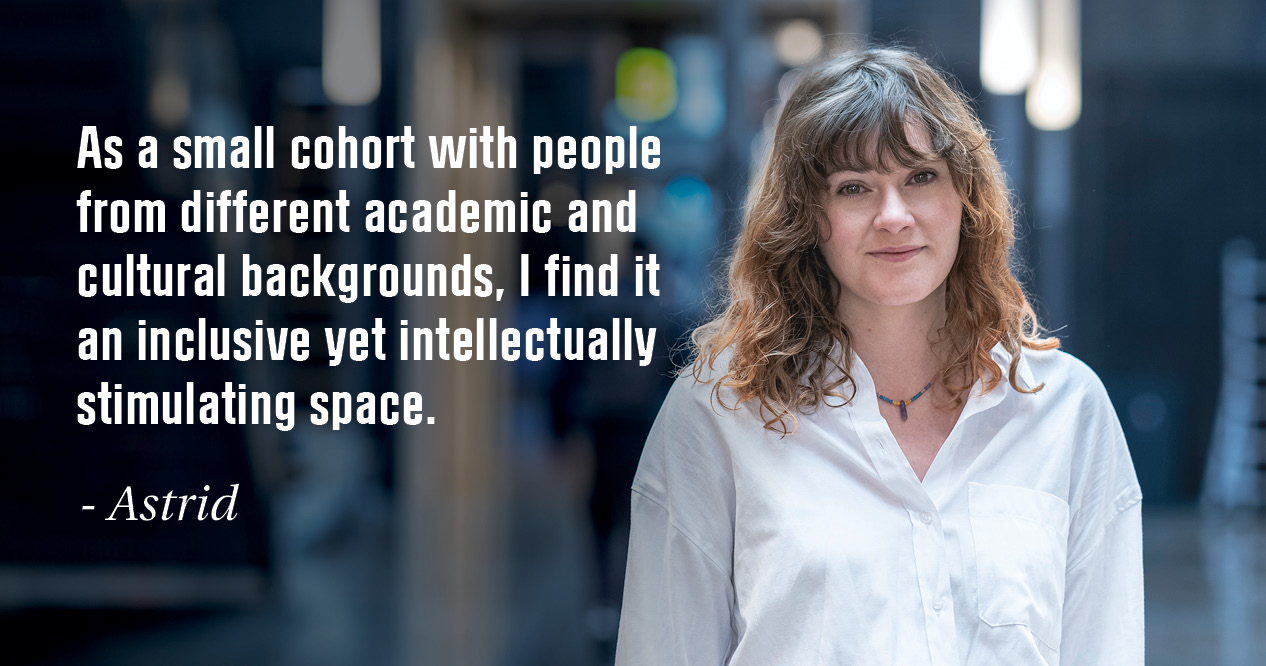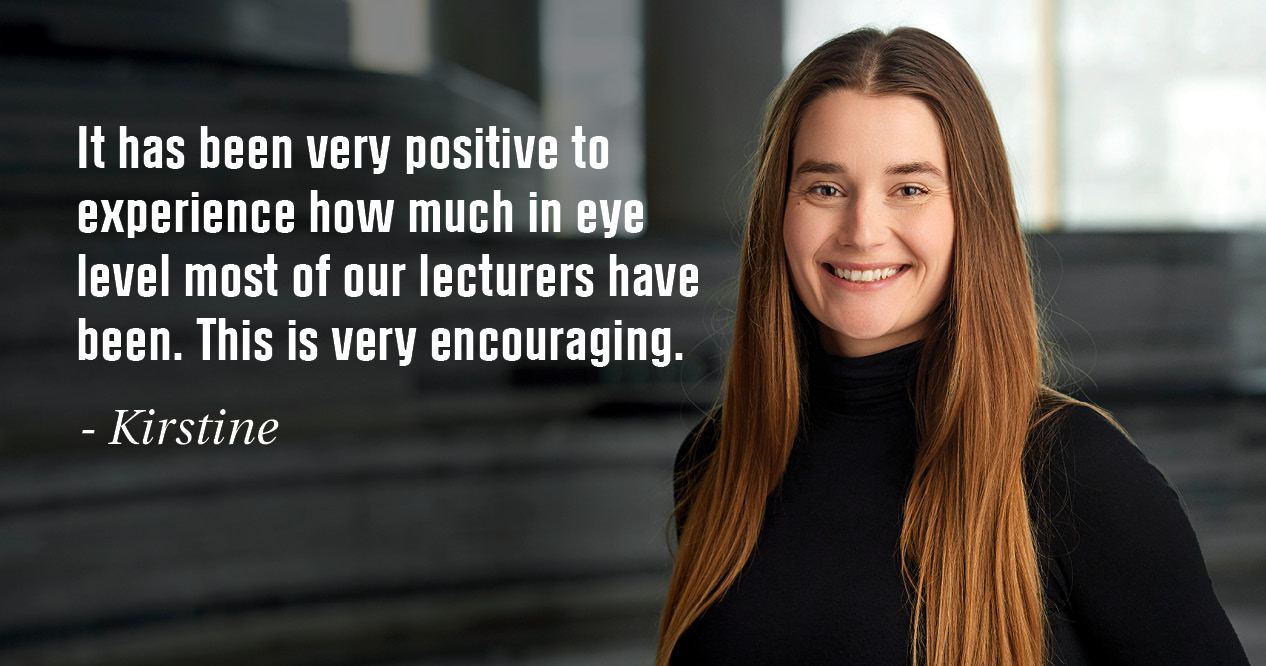Astrid
Why did I choose my programme (and CBS)?
Interesting combinations of subjects and the level of the teaching, drew me to and has kept me at CBS. I yearned to be in a place where I could explore critical and alternative perspectives on how business is conducted. Feeling like many economic premises were implicitly political and powerful, I wanted to go beyond surface accounts of this and explore questions that would take me to the root of the arguments.
What do I like the best?
Easily, it's the people! Based on the experience in my bachelor's, I didn't expect that I would enter a class where I would feel genuine care for all my classmates. Through developing close friendships from day one, I was luckily proven wrong. We even got an amazing unexpected travel opportunity, as we got to visit and work with organisations in Venice in the 1st semester. As a small cohort with people from different academic and cultural backgrounds, I find it an inclusive yet intellectually stimulating space.
How do I experience the difference in academic level between my bachelor and master programme?
On the master's, I find that we get to delve more in-depth into the topics that we work with, as the courses are more specific and the readings more advanced. I spend approximately double the amount of time on readings now, and I find that working thoroughly with them before classes gives a larger pay-off compared to during my bachelor's. Generally, I'm a lot more of an active participant in class now, which supports my learning. I also get to apply many of the insights in real time through my involvement in the Business Unusual at Station, the Student Innovation House next to CBS.

What are the biggest challenges in my study programme?
Self-definition and learning how to leverage your education in a job search is tricky, as there are fewer concrete methods and hard skills acquired. In the programme, we're covering a lot of academic ground in a short time span. Therefore, you rather quickly have to learn how to read and apply philosophical writings when you're coming from a different discipline. But with the support of very competent professors and good classmates it is absolutely doable and opens up a profound level for analysing concepts within just about any discipline.
What would I have liked to have known before starting my programme?
There are some practicalities that are good to know. The first round of applications for exchange is very soon after beginning your studies, so look into it early. The possibility of doing an internship cannot take up the whole of your 3rd semester, as it's 15 ECTS maximum. And most students write their thesis in pairs, which can be good to keep in mind when you start thinking of questions and topics of interest for the project. Also, the first year (when the class is gathered) flies by, so be present, take initiative and make the most of it!
What do I want to do after finishing my programme?
Some of my deep interests are related to social and environmental sustainability, and I can see myself working with these topics on a daily basis. I could imagine that international public governance or social innovation and entrepreneurship would be settings in which I thrive, so that's what I will seek out after graduating. These may well be pipe dreams, and I believe the road is laid while we walk it. Most things make sense in retrospect I think, so I'm open to trying my hand at different jobs. That's a true perk of being a generalist.
If I could give myself a piece of advice, before starting it would be…
Share what you learn with people inside and outside of your studies! It’s important and interesting for many to think about and discuss the underlying logics of how we organise, and it helps you solidify insights you get in the courses. And don't be deterred from speaking - no one has all the answers! Try to carve out as much time as possible for the studies, it's more fun and rewarding as a full time student than trying to balance it with many other commitments simultaneously. A game plan also wouldn't hurt, instead of operating day-to-day.
